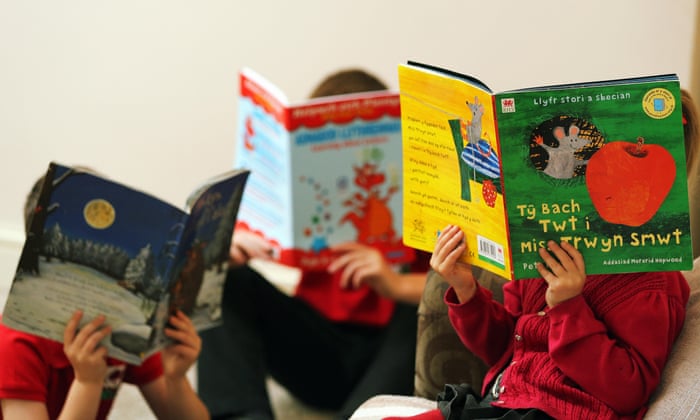A Welsh minister has described how in her childhood stones were hurled at her school bus because people objected to youngsters being taught in Welsh.
Speaking at her old school to launch a new strategy to increase the number of people speaking the language, the Welsh government’s language minister, Eluned Morgan, said: “I was one of a handful of children from my estate in Cardiff who had my education through the medium of Welsh and distinctly remember having stones thrown at our bus as they objected to having a Welsh-language school in their neighbourhood.”
When Morgan attended Ysgol Gyfun Gymraeg Glantaf, it was the only Welsh-language secondary school in Cardiff and the Vale of Glamorgan. There are now three in Cardiff and one in the vale.
The Welsh government has set an ambitious target of a million people, about a third of the population, being Welsh speakers by 2050. There are currently about 570,000.
Other targets set out in the report include increasing the number of primary teachers able to teach in Welsh from 2,900 to 3,900 by 2031 and to 5,200 by 2050. The target for secondary teachers in to increase their number from 1,800 to 3,200 by 2031 and 4,200 by 2050.
The government is planning to invest more money on sabbaticals to give teachers time to learn how to teach in Welsh and on incentives to encourage teachers to teach the language or other subjects in it.
Morgan, who went to school in the 1970s and 80s, said: “I am delighted that the attitude towards the language has changed fundamentally from when I was a child and that we now have the opportunity to build on this goodwill.
“Reaching a million Welsh speakers by 2050 is a significant challenge. Inspiring the next generation, particularly those from non-Welsh speaking families, to embrace the language and to use it in all contexts is vitally important in achieving this target.
“Whether our children attend Welsh-medium schools or learn the Welsh language in an English-medium school, education is key to the success of this ambition. This is why the Welsh in education action plan is so important and why it is a priority for the rest of this assembly term.”
There was alarm in Wales when the 2011 census found the number of Welsh speakers had fallen to around 562,000.
Today, there are 420 primary schools providing Welsh-language education to almost 67,000 learners and 49 secondary schools to almost 35,000 learners.
